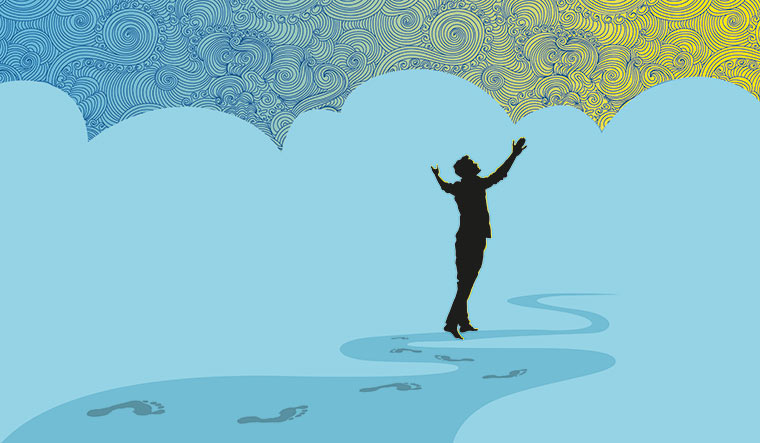There are certain times in life when you read a book or watch a movie or listen to the lyrics of a song and something clicks in your head. You instinctively know that this is a truth that fits your experience. When you get this illumination through literature, Salman Rushdie describes it thus: “When we read a book we like, or even love, we find ourselves in agreement with its portrait of human life. Yes, we say, this is how we are, this is what we do to one another, this is true.”
It is not very often that this happens, when your mind lights up like a Christmas tree. But when it does, your whole self feels lighter, as though your soul has touched the throbbing heart of the universe. Of course, soon enough, life comes rushing in with its humdrum concerns, disappointments and disillusionments. But you never forget the sensations you experienced in that moment. In some ways, your whole life can be whittled down to a yearning to stumble upon these truths. The Hitchhikers Guide to the Galaxy writer Douglas Adams called it the search for ‘Life, the Universe and Everything.’ French mathematician Blaise Pascal called it a desire to satiate an ‘Infinite Abyss’ of the heart. [For him, this abyss could only be satisfied through a knowledge of God.] The ancients condensed these life learnings into pithy idioms, which have become tried and tired cliches.
Also read
- I have been walking around with a letter of resignation, says Bibek Debroy
- Cricket and classical music are what have sustained me, says Ramachandra Guha
- I am now learning from people half my age, says Harsha Bhogle
- Ritu Kumar on how people mistook her saris for their ‘grandmother's bed covers’
- Being diagnosed with Addison's disease was traumatising, says Sushmita Sen
- The softest pillow is a clear conscience, says Narayana Murthy
- I was once mistaken for a baba during the Maha Kumbh, says Tarun Tahiliani
Still, as fashion designer Tarun Tahiliani says in our cover package, “A lot of the old cliches, however clichéd, are true. Because billions of people with wisdom, experience and compassion have lived before us. You can go to the Metaverse or to the iPhone, but universal truths remain the same. You might tweak them this way or that depending on your predilection, but it will remain the truth. So, embrace it and find yourselves.”
Tahiliani found his truth when he saw his first fashion show of any consequence by Pierre Cardin, the famous Italian-French designer. “I was fascinated,” he recalls. “I thought, ‘My God, I have always sketched, but I never knew this existed.’ It was lyrical, poetic, effortless, utterly beautiful…. It really was perfection. I came back and sketched and sketched.” For Bibek Debroy, economist and chairman of the Economic Advisory Council to the prime minister, it was a near-death experience that changed his perspective on life. For historian Ramachandra Guha, it was a British publisher who gave him the idea to write the book that would ultimately become his magnum opus, India After Gandhi.
Perhaps you have experienced something like this—an incident or insight, almost mystical, that has become a turning point in your life. If you have, you will be able to identify with the writers in this cover package. If not, just sit back and enjoy the ride, as they take you through the by-lanes and alleyways of their lives.


